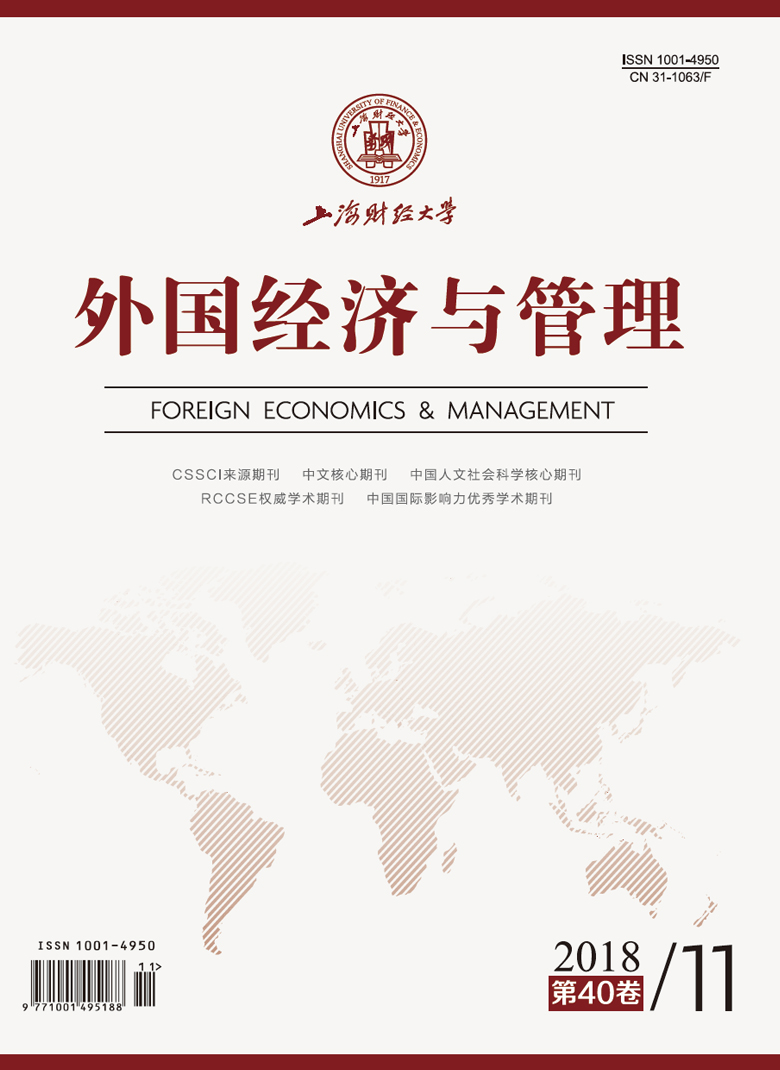在中国情境下,“即兴”作为创业过程中频发的一种普遍行为,已成为创业研究中的热点议题。即兴行为能够有效帮助新创企业应对意料之外事件的发生,在高度动荡的环境下,对新创企业的存活起着至关重要的作用,但是“摸着石头过河”的即兴行为往往具有较高的不确定性。而惯例既可以使组织在适应变化时保持稳定性,通过对惯例的重组还可以提高组织的灵活性。但是,对于一个企业而言,惯例的积累需要经历一个从无到有、由少渐丰、不断更新的过程。而新创企业由于缺乏惯例, 往往依靠即兴行为来应对突发事件。尽管许多学者已开始关注企业的惯性研究,但新创企业的惯例形成机理尚不清晰,作为即兴行为频发的新创企业,其即兴行为对惯例的形成机理尚未得到有效揭示。因而基于创业学习的视角,引入交互记忆系统,揭示新创企业即兴行为到惯例的形成机理,在理论上不仅有助于提升新创企业即兴行为的有效性,使新创企业在无法预知的不确定下提升存活概率,还有助于新创企业惯例的形成,为新创企业的长期发展奠定坚实的基础,进而在实践中指导新创企业的生存和发展。
新创企业即兴行为到惯例的形成机理:基于创业学习视角
摘要
参考文献
1 蔡莉, 汤淑琴, 马艳丽, 等. 创业学习、创业能力与新企业绩效的关系研究[J]. 科学学研究,2014, (8): 1189-1197 DOI:10.3969/j.issn.1003-2053.2014.08.010
3 陈文婷, 李新春. 中国企业创业学习: 维度与检验[J]. 经济管理,2010, (8): 63-72 DOI:10.3969/j.issn.1007-5097.2010.08.014
6 高洋, 葛宝山, 蒋大可. 组织学习、惯例更新与竞争优势之间的关系——基于不同环境不确定水平的研究[J]. 科学学研究,2017, (9): 1386-1395 DOI:10.3969/j.issn.1003-2053.2017.09.013
9 林筠, 闫小芸. 共享领导与团队知识共享的关系研究——基于交互记忆系统的视角[J]. 科技管理研究,2011, (10): 133-137 DOI:10.3969/j.issn.1000-7695.2011.10.032
18 王永伟. CEO变革型领导行为对组织惯例更新的影响机制研究[J]. 中国软科学,2017, (6): 163-173 DOI:10.3969/j.issn.1002-9753.2017.06.016
19 徐萌, 蔡莉. 新企业组织学习对惯例的影响研究——组织结构的调节作用[J]. 管理科学,2016, (6): 93-105 DOI:10.3969/j.issn.1672-0334.2016.06.008
20 杨隽萍, 唐鲁滨, 于晓宇. 创业网络、创业学习与新创企业成长[J]. 管理评论,2013, (1): 24-33 DOI:10.3969/j.issn.2095-3410.2013.01.004
25 Argote L, Miron-Spektor E. Organizational learning: From experience to knowledge[J]. Organization Science,2011, 22(5): 1123-1137 DOI:10.1287/orsc.1100.0621
26 Best S, Gooderham P. Improvisation: A legitimate strategy in the face of adversity[J]. Small Enterprise Research,2015, 22(1): 49-68 DOI:10.1080/13215906.2015.1017871
27 Bingham C B, Eisenhardt K M. Rational heuristics: The " simple rules” that strategists learn from process experience[J]. Strategic Management Journal,2011, 32(13): 1437-1464 DOI:10.1002/smj.965
28 Bingham C B, Eisenhardt K M. Response to Vuori and Vuori’s commentary on " Heuristics in the strategy context”[J]. Strategic Management Journal,2014, 35(11): 1698-1702 DOI:10.1002/smj.2257
29 Cunha M P E, Clegg S, Rego A, et al. Organizational improvisation: From the constraint of strict tempo to the power of the Avant-Garde[J]. Creativity and Innovation Management,2014, 23(4): 359-373 DOI:10.1111/caim.2014.23.issue-4
30 Deken F, Carlile P R, Berends H, et al. Generating novelty through interdependent routines: A process model of routine work[J]. Organization Science,2016, 27(3): 659-677 DOI:10.1287/orsc.2016.1051
31 Feldman M S, Pentland B T. Reconceptualizing organizational routines as a source of flexibility and change[J]. Administrative Science Quarterly,2003, 48(1): 94-118 DOI:10.2307/3556620
32 Hamilton E. Entrepreneurial learning in family business[J]. Journal of Small Business and Enterprise Development,2011, 18(1): 8-26 DOI:10.1108/14626001111106406
33 Levinthal D, Rerup C. Crossing an apparent chasm: Bridging mindful and less-mindful perspectives on organizational learning[J]. Organization Science,2006, 17(4): 502-513 DOI:10.1287/orsc.1060.0197
34 Lewis K. Measuring transactive memory systems in the field: Scale development and validation[J]. Journal of Applied Psychology,2003, 88(4): 587-604 DOI:10.1037/0021-9010.88.4.587
35 March J G. Exploration and exploitation in organizational learning[J]. Organization Science,1991, 2(1): 71-87 DOI:10.1287/orsc.2.1.71
36 Mcknight B, Bontis N. E-improvisation: Collaborative groupware technology expands the reach and effectiveness of organizational improvisation[J]. Knowledge and Process Management,2002, 9(4): 219-227 DOI:10.1002/(ISSN)1099-1441
37 Meshkati N, Khashe Y. Operators’ improvisation in complex technological systems: Successfully tackling ambiguity, enhancing resiliency and the last resort to averting disaster[J]. Journal of Contingencies and Crisis Management,2015, 23(2): 90-96 DOI:10.1111/jccm.2015.23.issue-2
38 Miner A S, Bassoff P, Moorman C. Organizational improvisation and learning: A field study[J]. Administrative Science Quarterly,2001, 46(2): 304-337 DOI:10.2307/2667089
40 Moorman C, Miner A S. Organizational improvisation and organization memory[J]. The Academy of Management Review,1998b, 23(4): 698-723 DOI:10.5465/amr.1998.1255634
41 Nisula A M, Kianto A. The role of knowledge management practices in supporting employee capacity for improvisation[J]. The International Journal of Human Resource Management,2016, 27(17): 1920-1937 DOI:10.1080/09585192.2015.1088885
42 Politis D. The process of entrepreneurial learning: A conceptual framework[J]. Entrepreneurship Theory and Practice,2005, 29(4): 399-424 DOI:10.1111/etap.2005.29.issue-4
43 Ren Y Q, Carley K M, Argote L. The contingent effects of transactive memory: When is it more beneficial to know what others know?[J]. Management Science,2006, 52(5): 671-682 DOI:10.1287/mnsc.1050.0496
44 Ren Y Q, Argote L. Transactive Memory Systems 1985-2010: An integrative framework of key dimensions, antecedents, and consequences[J]. Academy of Management Annals,2011, 5(1): 189-229 DOI:10.5465/19416520.2011.590300
45 Russo A, Vurro C. Cross-boundary ambidexterity: Balancing exploration and exploitation in the fuel cell industry[J]. European Management Review,2010, 7(1): 30-45 DOI:10.1057/emr.2010.2
46 Sarasvathy S D. Causation and effectuation: Toward a theoretical shift from economic inevitability to entrepreneurial contingency[J]. Academy of Management Review,2001, 26(2): 243-263 DOI:10.5465/amr.2001.4378020
47 Vera D, Crossan M. Improvisation and innovative performance in teams[J]. Organization Science,2005, 16(3): 203-224 DOI:10.1287/orsc.1050.0126
48 Vera D, Nemanich L, Vélez-Castrillón S, et al. Knowledge-based and contextual factors associated with R&D teams’ improvisation capability[J]. Journal of Management,2016, 42(7): 1874-1903 DOI:10.1177/0149206314530168
50 Zahra S A, Wright M, Abdelgawad S G. Contextualization and the advancement of entrepreneurship research[J]. International Small Business Journal,2014, 32(5): 479-500 DOI:10.1177/0266242613519807
引用本文
马鸿佳, 吴娟, 郎春婷. 新创企业即兴行为到惯例的形成机理:基于创业学习视角[J]. 外国经济与管理, 2018, 40(11): 116-128.
导出参考文献,格式为:
下一篇:营销领域的社会拥挤研究述评与展望





 9548
9548  12863
12863

